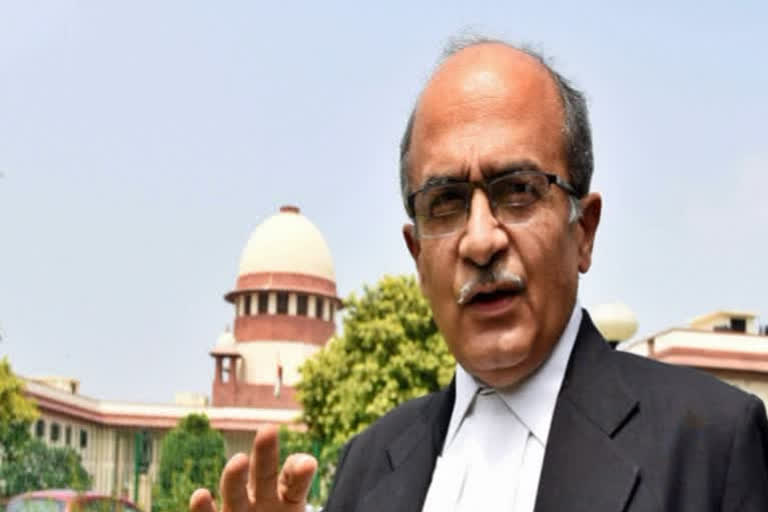New Delhi: The ruling of the Supreme Court 36 years back that "courts across the country must protect the freedom of expression" and that their "primary duty is to overrule laws and actions taken by governments to undermine it," upholds the true spirit of the Constitution.
The Supreme Court, which convicted senior lawyer Prashant Bhushan of contempt for making tweets against the judiciary, has nullified its self-declared ideal. The top court's comment that "there is a difference between reasonable criticism and wanton damage to the reputation of a system" is hundred per cent true.
However, doubts abound as to whether the judiciary's reputation is so weak that it will be swayed by tweets of criticism?
The five-member Constitutional Tribunal made it clear in a 1952 case that "by censuring criticism, the courts cannot win confidence of the people."
The need to uphold the dignity of the judiciary and the courts on the one hand, and the unconditional recognition of the fundamental right to freedom of speech guaranteed by the Constitution of India, 'even with reasonable sanctions' on the other -- the generous and balanced response of the courts certainly enhances their dignity and honour.
In a 1978 case, Justice Krishna Iyer ruled that "when elephant (judiciary here) moves forward gracefully, dogs bark. We would not respond to such silly criticism over and over again." Known as the principles of Mulgavonkar, these lofty ideals should be beacon lights for the judiciary now.
Read: Tweets were not intended to disrespect Supreme Court: Prashant Bhushan
The Contempt of Courts Act was first enacted in 1926 during the English period. In the context of its incorporation into the Constitution of India in 1949, a debate took place in the Constituent Assembly on the status of freedom of speech. Despite the fact that contempt laws are being abused and the threat to freedom of speech is being threatened when judges are both the prosecutors and victims - the supreme ideal of the smooth running of the judiciary has been upheld.
Although a new law was enacted in 1971 prescribing contempt powers and their procedures, by amending the law to protect defendants and the 'truth' in contempt of court cases, the freedom of expression continued to be undermined.
Justice AS Anand, in his capacity as the Chief Justice of the Supreme Court, had said that those who carry out the responsibilities of public bodies (public office) should be held accountable to the public. Since such suggestions were neglected, the Constitutional Review Committee has recommended that Article 19 (2) of the Constitution which restricts freedom of expression be amended.
In 1992, an Australian court ruled that a defendant could not be guilty of contempt of court if he intended to reasonably exercise his right to criticize without any malicious intent. Britain repealed the Contempt Act in 2013 as an obstacle to freedom of speech.
Although the Daily Mail criticized the three judges who ruled on Brexit in 2016 as "enemies of the people", the mature judiciary did not treat it as contempt of court. That kind of maturity to use the whip only when there is a threat to the judiciary enhances the prestige of the courts.
Read: CJI terms Justice Arun Mishra 'Iron Judge'; SCBA prez miffed for not being allowed to speak



